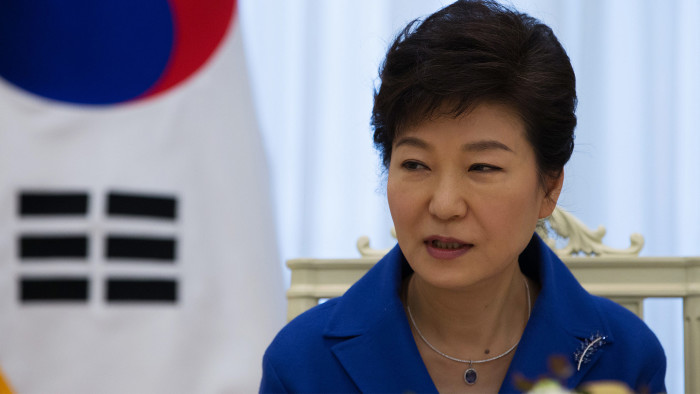South Korea set to rewrite history books

Roula Khalaf, Editor of the FT, selects her favourite stories in this weekly newsletter.
South Korea’s government said on Monday it would put the production of secondary-school history textbooks under state control, a move condemned as politically motivated by opposition lawmakers.
From February 2017, middle and high-school students will use a single history textbook that will be produced under a state-appointed committee, said Hwang Woo-yea, education minister.
“This was an inevitable choice in order to straighten out historical errors and end the social dispute caused by ideological bias in the textbooks,” he said. Parliamentary approval was not required for the change, the education ministry said.
The move will put an end to the current system under which schools are free to choose from books produced by private publishing companies, provided they are in line with guidelines set by the education ministry.
The system was introduced in 2010 to replace a state monopoly on history textbooks that was introduced by the authoritarian leader Park Chung-hee in 1974, two years after he revised the constitution to suspend democratic elections.
Park’s daughter, Park Geun-hye, is the sitting president and some of her political opponents have claimed that her government’s drive to reclaim control of the textbooks is driven by her desire to improve the standing of her father. He kick-started South Korea’s dramatic economic development but has been criticised for overseeing severe human rights violations, as well as for serving in Japan’s military during its colonial occupation of Korea.
“The Park government is trying to turn history books into government-controlled ones that glorify Japan and dictatorship,” the opposition New Politics Alliance for Democracy said in a statement after the announcement.
But leading figures in the ruling New Frontier party have said the return to a single government-authored history textbook is necessary to promote national unity and prevent the risk of schoolchildren developing sympathy for North Korea.
“Ninety per cent of history scholars in our country are leftwing,” Kim Moo-sung, the party’s leader, said last week. He said that all the current stock of history textbooks contained anti-state views, pointing to one book which he said failed to present North Korea’s Juche model — a vague ideology centred on the idea of national self-reliance — in a sufficiently negative light.
“There seems to be an intention to teach people’s revolution to the students,” Mr Kim said.
The government’s drive to overhaul the textbook system began after a scandal erupted over its approval in 2013 of a textbook that critics said provided an excessively conservative view of history, including downplaying human rights violations under Japanese occupation and the rule of Park Chung-hee.
The government responded by ordering revisions to all eight of the books, saying that all contained errors, and in January 2014 launched a process to determine necessary reforms to the system.
The end of schools’ right to choose from a range of textbooks marked a step backwards for the country’s education system, said Lee Joon-sik, a research fellow at the Center for Historical Truth and Justice and prominent opponent of the reform.
“The president is trying to extend ruling-party control and recover her father’s lost honour,” he said. “To do that, she needs to control the students.”
Additional reporting by Kang Buseong
Comments